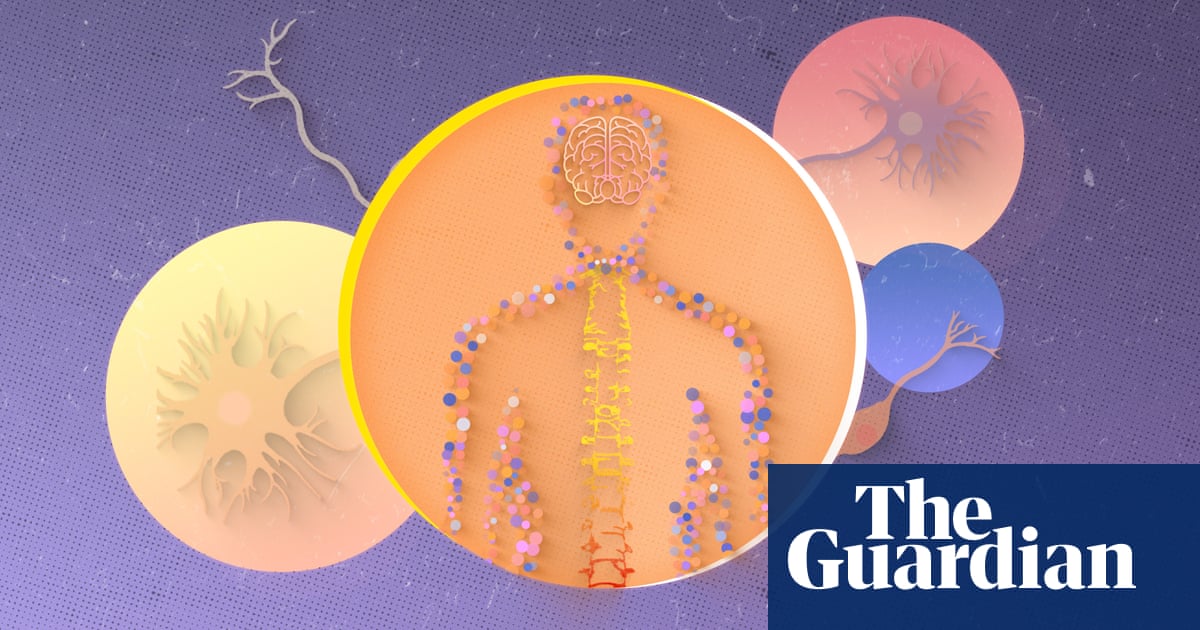
10 Best Articles on Chronic Pain
The most useful articles on chronic pain from around the web, curated by thought leaders and our community.
Refind focuses on timeless pieces and updates the list whenever new, must-read articles or videos are discovered.
Top 5 Chronic Pain Articles
At a glance: these are the articles that have been most read, shared, and saved on chronic pain by Refind users in 2024 so far.
- This Is How To Deal With Pain: 4 Powerful Secrets From Research
- 4 exercises that can prevent (and relieve!) pain from computer slouching and more
- Anti-inflammatory drugs like ibuprofen are used to treat chronic pain. What if they cause it?
- 100 million Americans have chronic pain. Very few use one of the best tools to treat it.
- Why gaming is so important to players with chronic pain
How to ...?
How to live without chronic back pain, according to an expert
Living with chronic back pain is not normal, nor is it necessary. This final article in a four-part back pain series by fitness expert Dana Santas empowers you to create a strategy for maintaining…
Short Articles
Short on time? Check out these useful short articles on chronic pain—all under 10 minutes.
This Is How To Deal With Pain: 4 Powerful Secrets From Research
We've all felt it -- and it's not much fun. What are the best ways to overcome pain? Here's what the research has to say...
«The Pain Management Workbook”, “When the Air Hits Your Brain: Tales from Neurosurgery”, “The Body in Pain: The Making and Unmaking of the World”, and “The Psychology of Pain.”»
Why gaming is so important to players with chronic pain
A look at the true importance of gaming for people with chronic pain.
4 exercises that can prevent (and relieve!) pain from computer slouching and more
Vinh Pham, physical therapist and author of "Sit Up Straight: Futureproof Your Body Against Chronic Pain with 12 Simple Movements," explains why mobility exercises and good posture may be your best…
Why Does Chronic Pain Hurt So Much?
When doctors ran out of answers for me, I looked to philosophy instead.
Anti-inflammatory drugs like ibuprofen are used to treat chronic pain. What if they cause it?
Chronic pain is often thought to be caused by inflammation. A provocative new paper suggests inflammation could actually prevent it.
«But a provocative new paper published to Science Translational Medicine suggests that reducing inflammation in the short-term could actually stifle healing, resulting in chronic pain over the long-term.»
Long Articles
These are some of the most-read long-form articles on chronic pain.
Sufferers of chronic pain have long been told it’s all in their head. We now know that’s…
There’s a growing realisation that pain can be a disease in and of itself – and the pandemic could be making it worse
100 million Americans have chronic pain. Very few use one of the best tools to treat it.
Chronic pain often has no physical cause. Psychotherapy can reduce the suffering.
How different types of chronic pain impact health
It is estimated that 1.5 billion people globally live with chronic pain, and prevalence increases as people age.
Pain is a signal of vulnerability
Doctors and patients alike make a crucial misinterpretation: pain is not a signal of body damage, but of vulnerability (possible future damage).This coherently explains the placebo effect and other…
What is Refind?
Every day Refind picks the most relevant links from around the web for you. Picking only a handful of links means focusing on what’s relevant and useful.
How does Refind curate?
It’s a mix of human and algorithmic curation, following a number of steps:
- We monitor 10k+ sources and 1k+ thought leaders on hundreds of topics—publications, blogs, news sites, newsletters, Substack, Medium, Twitter, etc.
- In addition, our users save links from around the web using our Save buttons and our extensions.
- Our algorithm processes 100k+ new links every day and uses external signals to find the most relevant ones, focusing on timeless pieces.
- Our community of active users gets the most relevant links every day, tailored to their interests. They provide feedback via implicit and explicit signals: open, read, listen, share, mark as read, read later, «More/less like this», etc.
- Our algorithm uses these internal signals to refine the selection.
- In addition, we have expert curators who manually curate niche topics.
The result: lists of the best and most useful articles on hundreds of topics.
How does Refind detect «timeless» pieces?
We focus on pieces with long shelf-lives—not news. We determine «timelessness» via a number of metrics, for example, the consumption pattern of links over time.
How many sources does Refind monitor?
We monitor 10k+ content sources on hundreds of topics—publications, blogs, news sites, newsletters, Substack, Medium, Twitter, etc.
Can I submit a link?
Indirectly, by using Refind and saving links from outside (e.g., via our extensions).
How can I report a problem?
When you’re logged-in, you can flag any link via the «More» (...) menu. You can also report problems via email to hello@refind.com
Who uses Refind?
450k+ smart people start their day with Refind. To learn something new. To get inspired. To move forward. Our apps have a 4.9/5 rating.
Is Refind free?
Yes, it’s free!
How can I sign up?
Head over to our homepage and sign up by email or with your Twitter or Google account.
Keep Learning
Get the big picture on your favorite topics.









